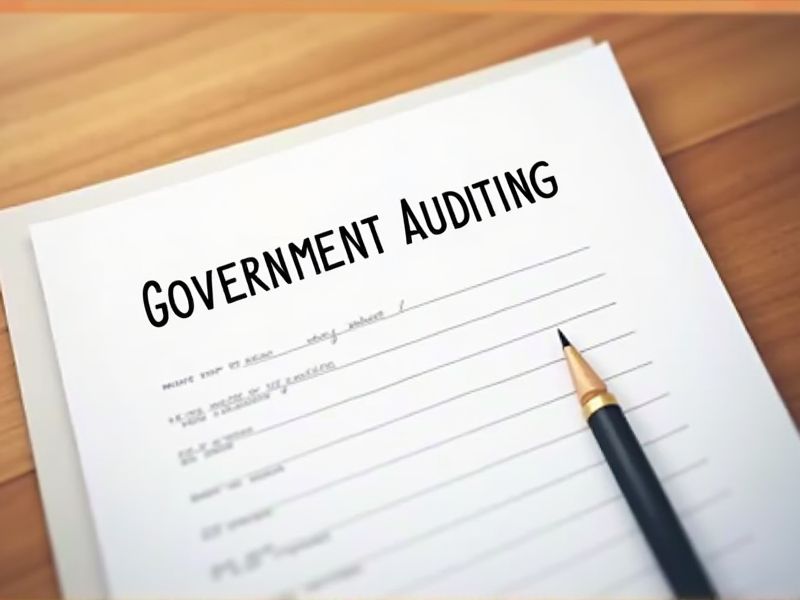
Government auditing professionals require certain certifications to ensure they have the expertise to evaluate financial documents and compliance with regulations. Certifications validate the auditors' skills in risk management, compliance, and ethical standards, which are crucial for maintaining public trust and accountability. They also provide a competitive edge, enhancing career opportunities and credibility within the sector. Key certifications that government auditing professionals might pursue include the following:
Certified Government Auditing Professional (CGAP)
The CGAP certification ensures that government auditors possess specialized knowledge in public sector auditing standards and practices, enhancing their effectiveness. It establishes a benchmark of competence, which increases accountability and transparency in government financial operations. By having CGAP certification, professionals can gain trust and credibility when working on audits, contributing to improved public confidence. This credential helps auditors stay current with evolving government regulations, enabling them to provide more accurate and reliable auditing services.
Certified Internal Auditor (CIA)
Government auditing requires high standards of integrity, objectivity, and proficiency, which a Certified Internal Auditor (CIA) ensures through rigorous training and certification. The CIA designation validates a professional's expertise in internal auditing, crucial for identifying inefficiencies and potential fraud in public sector operations. With a structured approach to risk management and control assessment, a CIA helps improve government accountability and transparency. CIA professionals possess knowledge of governance practices, which enhances the quality and reliability of governmental financial reporting and performance auditing.
Certified Public Accountant (CPA)
Government auditing requires a Certified Public Accountant (CPA) because the designation ensures deep expertise in accounting principles and audit procedures. The rigorous training and examination process for CPAs provides a strong foundation in regulatory compliance and financial accuracy, which are critical in the public sector. CPAs enhance credibility and transparency in government financial reports, reducing the risk of mismanagement or fraud. A CPA's ethical framework and commitment to continuing education align well with the accountability standards expected in government audits.
Certified Fraud Examiner (CFE)
Government auditing requires Certified Fraud Examiners (CFE) due to their specialized knowledge in detecting and investigating fraud. CFEs possess skills critical for identifying fraudulent activities in public sector financial operations, thereby ensuring accountability and transparency. Their expertise in understanding complex financial systems and legal frameworks assists in safeguarding public funds against misuse. Employing CFEs can lead to improved accuracy and reliability in government audits, reducing the risk of corruption and financial discrepancies.
Certified Government Financial Manager (CGFM)
A CGFM designation establishes a standard of expertise in governmental financial management, ensuring auditors are equipped to handle the complexities of public sector finances. The credential demonstrates an understanding of governmental accounting, budgeting, and auditing, crucial for ensuring transparency and accountability. Having CGFM-certified professionals in auditing roles enhances public trust as they adhere to recognized ethical standards. This certification aligns auditors with government-specific regulations and practices, reducing the risk of financial mismanagement.
Certified Information Systems Auditor (CISA)
CISA certification is essential for government auditing professionals because it validates their expertise in assessing and managing IT and security risks. With increasing digitalization, governments face complex cybersecurity challenges, and CISA-trained auditors are skilled in evaluating the adequacy of controls and compliance with regulations. The certification ensures auditors possess up-to-date knowledge in IT governance and auditing practices, enhancing trust and credibility in governmental audits. CISA's emphasis on continuous professional education helps auditors stay informed about evolving risks and technologies.
Certified in Risk Management Assurance (CRMA)
The CRMA certification equips government auditing professionals with skills essential for assessing risk management frameworks effectively. Demand for comprehensive risk assurance in the public sector is increasing due to evolving regulatory requirements. Holding a CRMA enhances credibility, aligning auditors with global standards of risk evaluation. The credential supports government auditors in identifying potential risks, ensuring more robust and transparent governance practices.
Certified Forensic Accountant (CrFA)
Government auditing involves scrutinizing financial data to ensure accuracy and compliance. Certified Forensic Accountants possess the specialized skills to detect fraud and irregularities within complex financial statements. Their expertise is critical in identifying and mitigating financial risks in public spending. Employing CrFA professionals enhances transparency and accountability in government financial operations.
Chartered Accountant (CA)
Chartered Accountants possess in-depth understanding of financial regulations and principles, enabling them to interpret and apply complex accounting standards accurately. Their training includes rigorous examinations and practical experience that equip them to identify discrepancies and ensure transparency in government financial statements. In government auditing, CAs bring expertise in risk assessment critical for evaluating the effectiveness of internal controls and detecting potential fraud. Their skills in auditing and financial reporting ensure accountability in government financial operations, enhancing public trust.
Certified Information Security Manager (CISM)
Certified Information Security Manager (CISM) is needed for Government Auditing Professionals because it ensures a comprehensive understanding of information security governance, which is crucial for auditing sensitive government data. The certification provides the knowledge necessary to develop and manage an information security program, increasing the integrity of audit outcomes. CISM expertise equips auditors with risk management skills that are essential to identify and mitigate potential security breaches in government systems. Organizations benefit from enhanced credibility and trust when their auditors hold CISM certification, as it signifies a commitment to maintaining high standards in information security.
Summary
With certifications, you enhance your credibility and trustworthiness in the field of government auditing. This leads to increased career opportunities as organizations prefer certified professionals. Your skills in identifying inefficiencies and ensuring compliance likely improve, which benefits your audits' quality. Organizations might witness better financial management, reducing risks and enhancing transparency due to your expertise.
